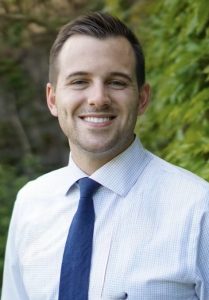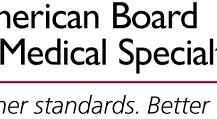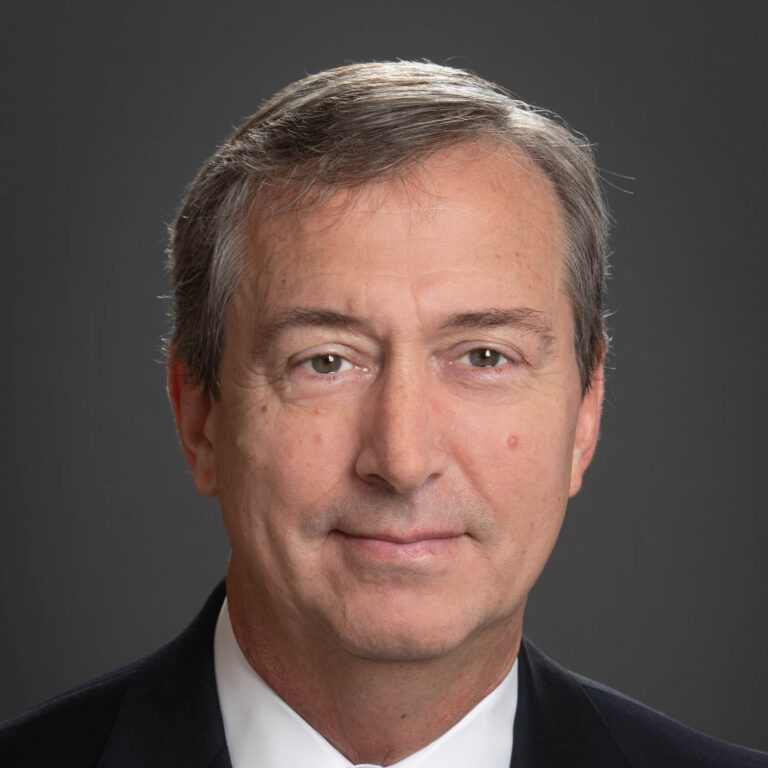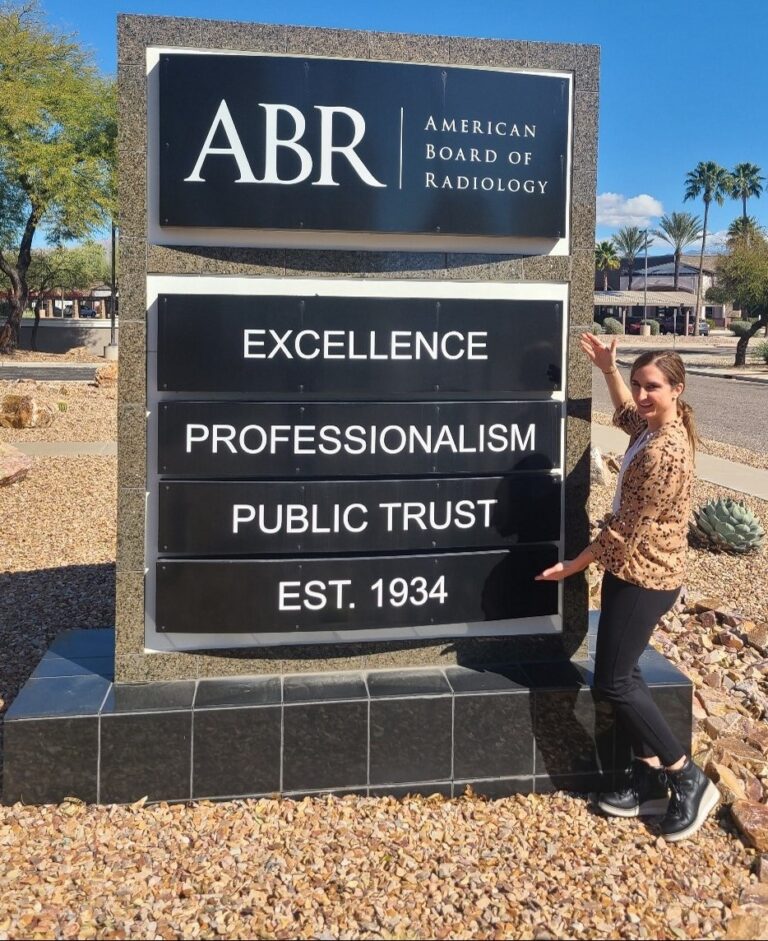Cancer Experience Sparked His Interest in Medicine
When he was 14 years old, Cameron Brock, MD, was a typical teen. He was active, enjoying a life spent outdoors in his native Utah. There’s no way he could have imagined what was coming.
“All of a sudden, I had a lot of pain in my right leg,” he said. “I wasn’t able to put weight on it, but I was a typical teenager. I was playing football, snowboarding, and things like that. But it was strange that I couldn’t put any weight on the leg.”
Imaging led to the diagnosis of an enchondroma, a bone tumor in the fibula. His pediatrician assured Dr. Brock and his family that there was a 99% chance it wouldn’t turn cancerous but said that he would continue monitoring it.
He spent the next couple of years getting follow-up imaging every six months. But the pain kept returning.
“It would be there for a couple of days and then it would get better, and I’d go back to my normal activities,” Dr. Brock said.
The nagging issue prompted his physician to order a biopsy when Dr. Brock was 16. The result was unexpected: Ewing sarcoma, a malignant bone cancer that primarily affects young people.
“Going through the biopsy, I was an invincible 16-year-old,” he said. “I thought, ‘Oh, it’s just part of the process. They just want to make sure it is what they think it is.’ I was caught off guard, to be honest. My parents and I were in shock.”
The diagnosis started a long road of treatment. Dr. Brock underwent a few months of chemotherapy followed by surgical removal of the tumor and an additional year of chemotherapy treatment.
He received his treatments at Primary Children’s Hospital with intermittent hospitalizations for infections. Still, Dr. Brock said he was fortunate to complete treatment and be deemed cancer-free.
“I was very fortunate that the cancer hadn’t spread,” he said. “It was localized to that bone. I had a great family to give me support. I saw people in the children’s hospital who were in far worse condition without the type of support that I felt from my family. It helped me keep perspective.”
Even with his perspective intact, Dr. Brock had a lot to deal with as a teen cancer patient.
“I had just gotten my driver’s license,” he said. “Two months before, I was on the football team and was about to start the spring track and field season. Then here I was in the hospital throwing up all the time. I didn’t get to go to school. I tried to make it every once in a while, but because my immune system was so poor and I wasn’t feeling good, I didn’t really get to go that much. My whole life was going to doctor appointments, getting imaging, or being at the hospital.”
Dr. Brock made the most of his downtime in the hospital. Curiosity about his condition sparked an interest in medicine.
“I wanted to know what was going on with me,” he said. “I wanted to know more about the medications they were giving me. A few of the residents gave me some of their textbooks. When I was in the hospital for a week or two at a time, we only had two channels on the TV and not a lot of other things to do. I read those medical textbooks, which I didn’t fully understand. But little by little my knowledge grew and I was able to be more of an advocate for myself and participate in my care and be more of an advocate for myself.”
When his treatment was complete, he returned to Bountiful High School in Utah and completed an anatomy and physiology course. His career goals were taking shape.
“Going to my follow-up appointments, I was able to ask more questions of my oncologist and surgeons, and I saw how it benefited my life and relationship I had with my doctors,” Dr. Brock said. “At the end of high school, I was starting to realize that this was what I wanted to do.”
After getting his undergraduate degree in biology at Utah State, he earned a master’s in pharmacology at Georgetown University and completed medical school at Creighton University. After finishing an intern year in surgery at the University of Texas at Austin Dell Medical School, he moved on to the University of California, Davis, and is in his third year of an integrated interventional radiology residency, where he is able to participate in and help others on their cancer journeys.
Miles from home and following his cancer experience, Dr. Brock still sees reminders of the challenge he overcame. As part of his MSK rotation, he and his cohort train in bone imaging. During one of his tumor boards, he sat next to Lor Randall, MD, the surgeon who removed his cancerous tumor. Dr. Randall is chair of orthopaedic surgery at UC Davis.
“When I found out I was coming to UC Davis, I reached out to him on Twitter,” he said. “I said, ‘Hey, you probably don’t remember me, but I just want to let you know I went through med school and I’m actually coming to UC Davis for the IR program.’ He was excited and it was nice to catch up with him. It’s kind of serendipity that we ended up at the same place.”






